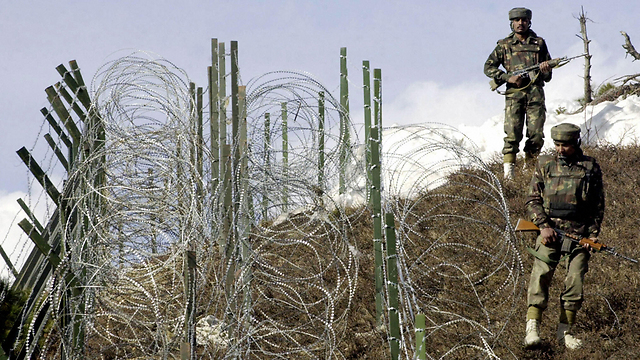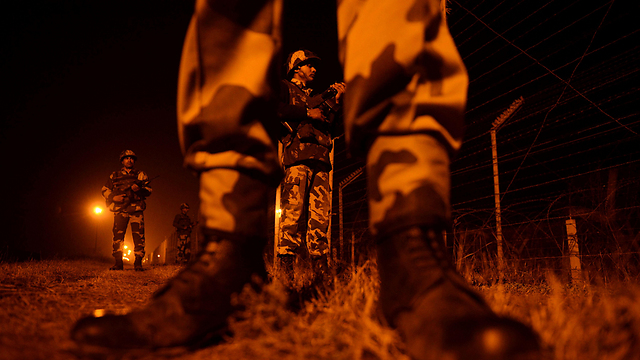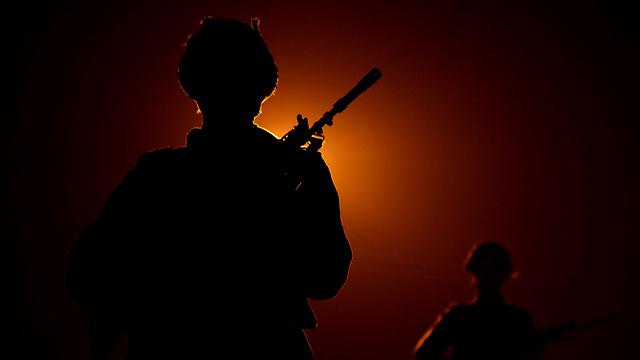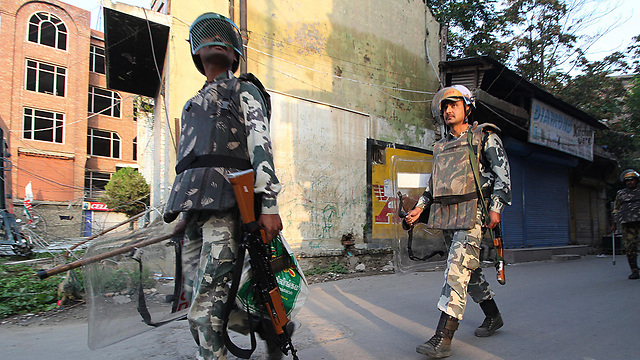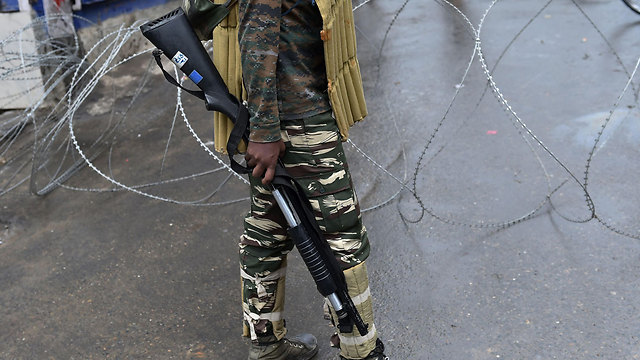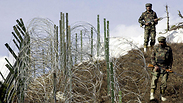
NEW DELHI/ISLAMABAD - Indian officials said elite troops crossed into Pakistan-ruled Kashmir on Thursday and killed suspected militants preparing to infiltrate and carry out attacks on major cities, in a surprise raid that raised tensions between the nuclear-armed rivals.
Pakistan said two of its soldiers had been killed in exchanges of fire, but denied India had made any targeted strikes across the de facto frontier that runs through the disputed Himalayan territory.
Indian Special Forces crossed the heavily militarized border by foot just after midnight and hit about half a dozen "launching pads", where the suspected militants were preparing to sneak across, an Indian military source and a government official said.
The official said troops killed militants numbering in the double digits, and that no Indian soldier was killed.
An army official based in Indian-controlled Kashmir said two Indian soldiers were wounded while returning from the raid - one stepped on a landmine and another was shot.
The strikes mark a rare public announcement by India that it had launched a military operation across its de factor border with Pakistan.
They followed Prime Minister Narendra Modi's warning that those India held responsible "would not go unpunished" for a Sept. 18 attack on an army base in Uri, near the Line of Control, that killed 18 soldiers.
The strikes also raised the possibility of military escalation between the neighbors that could wreck a 2003 Kashmir ceasefire.
India evacuated people from villages within 10 km of the de facto border in the Jammu area as a precautionary measure.
Share markets in India and Pakistan fell after India announced the strike at a hastily called press conference.
US-listed stocks in Indian companies such as ICICI Bank, Tata Motors and Infosys' ADRs were also down in premarket US trade on Thursday.
Lieutenant General Ranbir Singh, the Indian army's director general of military operations (DGMO), said the strikes were based on "specific and credible information that some terrorist units had positioned themselves ... with an aim to carry out infiltration and terrorist strikes".
Singh said he had called his Pakistani counterpart to inform him of the operation, which had ended. India later briefed opposition parties, which backed the mission, as well as about 25 foreign envoys, but did not disclose operational details.
"It would indicate that this was all pretty well organized," said one diplomat, who spoke on condition of anonymity because the briefing by Foreign Secretary Subrahmanyam Jaishankar was confidential.
"A BASELESS LIE"
Pakistan's military spokesman dismissed the Indian account as "totally baseless and completely a lie", saying the contact between DGMOs only included communication regarding cross-border firing, which was within existing rules of engagement.
"We deny it. There is no such thing on the ground. There is just the incident of the firing last night, which we responded to," Lieutenant General Asim Bajwa told news channel Geo TV.
The border clash comes at a delicate time for Pakistan, with powerful Chief of Army Staff General Raheel Sharif to retire soon and Prime Minister Nawaz Sharif still to decide on a successor.
The Pakistani premier condemned India's "unprovoked and naked aggression" and called a cabinet meeting on Friday to discuss further steps.
Neither side's accounts could be independently verified. The Indian government official briefed on the operation declined to offer more evidence about how the strikes were carried out or what the militants were planning to do.
India's disclosure of such strikes was unprecedented, said Ajai Sahni of the Institute for Conflict Management in New Delhi, and sent a message not only to his own people but to the international community.
"India expects global support to launch more focused action against Pakistan," Sahni said. "There was tremendous pressure on the Indian prime minister to prove that he is ready to take serious action."
Jammu and Kashmir Chief Minister Mehbooba Mufti warned that the confrontation could be disastrous if urgent steps were not taken to reduce tensions in the region.
"New Delhi and Islamabad must open the channels of communication, realizing the dangerous consequences of any escalation of ongoing confrontation along the borders," she said.
HEAVY ARTILLERY FIRE
Indian officials said the strike targeted areas close to the Line of Control, where it believes militants congregate for their final briefings before sneaking across the border.
An Indian security source said the operation began with Indian forces opening artillery firing across the frontier, providing cover for three to four teams of heavily armed Indian soldiers to cross over at points several kilometers apart.
The operation was over before sunrise. The government official said they expected more details to emerge in the coming days as they intercepted communications and gathered further intelligence.
A Pakistani military officer at Chhamb, near the Line of Control, contradicted the Indian version, saying the attack had been repelled.
Both India and Pakistan claim Kashmir in full, but govern separate parts, and have fought three wars since independence from Britain in 1947, two of them over Kashmir.
Tension between the South Asian rivals has been high since an Indian crackdown on dissent in Kashmir following the killing by security forces of Burhan Wani, a young separatist leader, in July.
They rose further when New Delhi blamed Pakistan for the Uri base attack, which inflicted the heaviest toll on the Indian army in a single incident in 14 years.
India, which had already launched a diplomatic drive to isolate Pakistan, said on Wednesday it would boycott a regional summit hosted by Pakistan in November.













